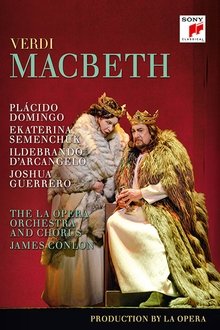An all-star cast assembled for the Met’s first-ever performances of Rossini’s romantic retelling of Sir Walter Scott’s epic poem The Lady of the Lake. Joyce DiDonato is Elena, the title heroine, who is being pursued by not one, but two tenors—setting off sensational vocal fireworks. Juan Diego Flórez is King James V of Scotland, disguised as the humble Uberto, and John Osborn sings his political enemy, and rival in love, Rodrigo Di Dhu. Complicating matters is the fact that Elena herself loves Malcolm, a trouser role sung by mezzo-soprano Daniela Barcellona, and that she is the daughter of Duglas (Oren Gradus), another of the king’s political adversaries. Paul Curran’s atmospheric production is conducted by Michele Mariotti.
Related Movies

Aria (1987)
Ten short pieces directed by ten different directors, including Ken Russell, Jean-Luc Godard, Robert Altman, Bruce Beresford, and Nicolas Roeg. Each short uses an aria as soundtrack/sound, and is an interpretation of the particular aria.

Paisiello Nina (2002)
The opera: Nina, o sia La Pazza Per Amore itself, is an extra-ordinary sad and touching story, and seems very difficult to be performed if the singer has no acting talents. Therefore we adore Cecilia Bartoli for the magnificent performance as the crazy Nina who lost her mind totally. Her magnificent singing, we don't doubt at all, but her acting is amazingly such that it expressed a real situation of a girl becoming crazy and losing her mind caused by painful incidents in her love life. It is also supported by the other singers who are singing matching as perfectly and splendidly as the diva Cecilia Bartoli, especially the baritone Laszlo Polgar with his deep rich voice as the cruel father who has remorse and came back to see his daughter Nina and the young tenor Jonas Kauffmann with his clear light voice, resulting in a surprisingly beautifully performed opera.

The Turn of the Screw (2020)
Louisa Muller makes her Garsington directing debut and we welcome back Richard Farnes (Falstaff, 2018) to conduct with Sophie Bevan (Don Giovanni, 2012) as the Governess and British tenor Ed Lyon making his Garsington debut as Quint. A young governess is sent to a remote country house to care for two children. She becomes increasingly disturbed by their behaviour but is under strict instruction never to bother their guardian in London. Are they innocent or wicked, possessed or just high-spirited?
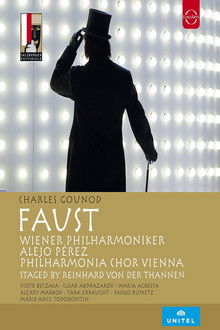
Gounod Faust (2016)
Salzburg Festival’s first-ever performance of Charles Gounod´s most famous and most performed opera! Internationally-acclaimed tenor Piotr Beczala triumphs in the title role as soul-selling philosopher Faust: “Piotr Beczala is a world-Faust” (Kurier) and “The well-deserved crown goes to a perfectly-cast Piotr Beczala” (Abendzeitung). Ildar Abdrazakov was “celebrated” (Broadway World) for his signature role as seductive and demonic Méphistophélès. Maria Agresta as convincingly innocent Marguerite struggling to resist temptation and to gain salvation: “She is fabulous!” (Süddeutsche Zeitung). “Spectacular and photogenic” staging (Frankfurter Allgemeine Zeitung) by award winning stage director and designer Reinhard von der Thannen. The Philharmonia Chor Wien and the Wiener Philharmoniker are performing under the baton of young Argentinian conductor Alejo Pérez.
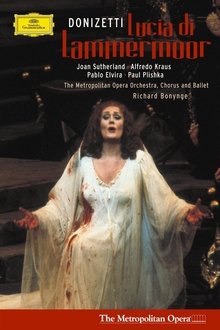
Lucia di Lammermoor (1983)
This telecast offers a rare opportunity to see the legendary Joan Sutherland in the role that first catapulted her to international stardom. She drove audiences wild by the way her opulent voice caressed the music’s long phrases and sprinted effortlessly through the fiendish runs, trills, embellishments and stratospheric high notes. One of the glories of the operatic world, her portrayal of Donizetti’s hapless heroine is a multifaceted and moving characterization. The incomparable tenor Alfredo Kraus is Edgardo, the man Lucia loves but cannot have. (Performance taped November 13, 1982. Broadcasted September 28, 1983.)
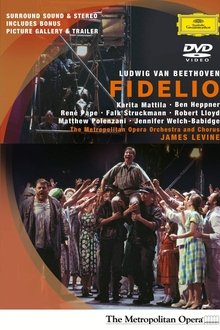
Ludwig van Beethoven: Fidelio (2003)
Two years prior to the opening scene, the nobleman Florestan has exposed or attempted to expose certain crimes of the nobleman Pizarro. In revenge, Pizarro has secretly imprisoned Florestan in the prison over which Pizarro is governor. The jailer of the prison, Rocco, has a daughter, Marzelline, and a servant (or assistant), Jaquino. Florestan’s wife, Leonore, came to Rocco’s door dressed as a boy seeking employment, and Rocco hired her. On orders, Rocco has been giving Florestan diminishing rations until he is nearly starved to death. Place: A Spanish state prison, a few miles from Seville; Time: Late 18th century.
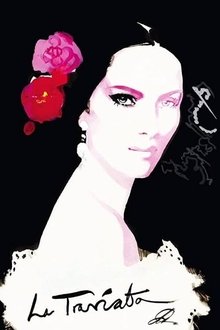
La Traviata (2017)
A collaboration between award-winning American filmmaker Sofia Coppola and Italia haute couture king Valentino comes in the form of a revival of Giuseppe Verdi's classic opera, La Traviata. Captured live from the Teatro dell'Opera di Roma.

Così fan tutte (2013)
Who loves whom in Così fan tutte, Mozart’s and Da Ponte’s cruelly comic reflection on desire, fidelity and betrayal? Or have the confusions to which the main characters subject one another ensured that in spite of the heartfelt love duets and superficially fleetfooted comedy nothing will work any longer and that a sense of emotional erosion has replaced true feelings? Così fan tutte is a timeless work full of questions that affect us all. The Academy Award-winning director Michael Haneke once said that he was merely being precise and did not want to distort reality. In only his second opera production after Don Giovanni in 2006, he presents what ARTE described as a “disillusioned vision of love in an ice-cold, realistic interpretation”.

Strauss: Elektra (1980)
It's hard to imagine confirmed Straussians not wanting this starry Metropolitan Opera performance of Elektra. Strauss and his librettist, Hugo von Hofmannstahl, transformed Sophocles' take on Homer's tale into a harrowing opera noir. Elektra lives for one reason, to kill her mother, Klytämnestra, and her stepfather, Aegisth, the murderers of her father, Agamemnon. In contrast to Elektra's vengeful obsession, her sister Chrysothemis desires to get on with life. When their long-missing brother, Orestes, returns to do the deed, Elektra celebrates with a dance of death and, her sole purpose in life fulfilled, dies. Strauss joined the hermetic plot to music of the utmost opulence, violent and yearning by turns, evoking the cardinal principles of Greek tragedy - pity and terror.
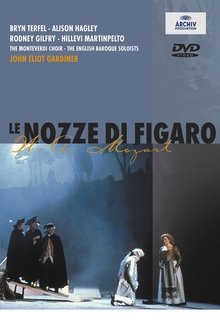
The Marriage of Figaro (1993)
This is a good video of "Figaro", but there are a couple of better ones available. The Bohm and the Pappano are better still due to the female members of the casts. The reason for buying this one is the "Figaro", Bryn Terfel. No one can top him today in that role. John Eliot Gardiner also stands out. Many of us have voiced their opinion that If the Metropolitan Opera would release it's 1998 version, that would be the one to get.

Puccini: Manon Lescaut (1980)
All the throbbing eroticism—and ultimate heartbreak—of Puccini’s youthful score is unleashed by James Levine and his top-flight cast. Plácido Domingo is Des Grieux, the handsome, headstrong young aristocrat who falls head over heels for the enticing, impetuous Manon Lescaut (Renata Scotto). Manon returns his love, but her obsession with luxury ruins them both. Gian Carlo Menotti’s opulent production, with sets and costumes by Desmond Heeley, superbly captures the colorful world of 18th century France.

Carmen Not Only According to Bizet (1968)
This is funny or rather crazy adaptation of classical opera Carmen inspired by famous czech theatre Ypsilon play of the same name shot at various bizarre locations such as airport, botanical garden and winter forest.

A Cossack Beyond the Danube (1953)
Zaporozhets za Dunayem (Ukrainian: Запорожець за Дунаєм, translated as A Zaporozhian (Cossack) Beyond the Danube, also referred to as Cossacks in Exile) is a Ukrainian comic opera with spoken dialogue in three acts with music and libretto by the composer Semen Hulak-Artemovsky (1813–1873). The orchestration has subsequently been rewritten by composers such as Reinhold Glière and Heorhiy Maiboroda. This is one of the best-known Ukrainian comic operas depicting national themes.
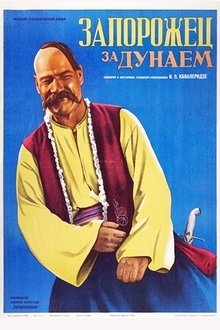
Zaporozhets Za Dunayem (1937)
Adapted from the opera written by the composer Semen Hulak-Artemovsky.

Gianni Schicchi (2005)
Alessandro Corbelli takes the title role in Annabel Arden's whirlwind production of Puccini's compact opera, in which the scheming Gianni Schicchi retrieves for himself the spoils of a disinherited family to pave the way for his daughter to marry her love.

Ariodante (2017)
At Salzburg Festival, Cecilia Bartoli shines as Ariodante with her dazzling coloratura in a highly acclaimed new production by the German director Christoph Loy, who is known for his clever psychological stagings. Loy turns Handel's splendid baroque opera into an exciting and differentiated reflection on gender roles.
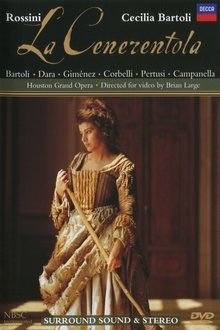
Rossini: La Cenerentola (2001)
La Cenerentola, ossia La bontà in trionfo (Cinderella, or Goodness Triumphant) is an operatic dramma giocoso in two acts by Gioachino Rossini. The libretto was written by Jacopo Ferretti, based on the fairy tale Cendrillon by Charles Perrault. The opera was first performed in Rome's Teatro Valle on 25 January 1817.---- IMDB id refers to Great Performances: Season 24, Episode 12 La Cenerentola (3 Apr. 1996) from Houston Grand Opera so release date is misleading.

La Traviata (2001)
La traviata (Italian: [la traˈviaːta], "The Fallen Woman"[1][2]) is an opera in three acts by Giuseppe Verdi set to an Italian libretto by Francesco Maria Piave. It is based on La dame aux Camélias (1852), a play adapted from the novel by Alexandre Dumas, fils. The opera was originally entitled Violetta, after the main character. It was first performed on 6 March 1853 at the La Fenice opera house in Venice. Piave and Verdi wanted to follow Dumas in giving the opera a contemporary setting, but the authorities at La Fenice insisted that it be set in the past, "c. 1700". It was not until the 1880s that the composer and librettist's original wishes were carried out and "realistic" productions were staged.[3]

